It took six years and numerous medical procedures for Thanadech Jandee to become the man he is today. Born female, Thanadetch has paid nearly THB500,000 (Us$14,400) for testosterone hormone therapy, top surgery, and a hysterectomy, all simply to have his physical form match his identity.
“I was extremely frugal. I used to eat one meal a day, keeping my expenses as low as THB100 (US$3) per day. Sometimes I resort to starving myself to save money,” said Thanadetch, a 33-year-old working as a delivery rider. “I tried every way to save enough money to transform my gender from female to male.”
For Thanadech and thousands every year like him, the out-of-pocket expenses for such gender-affirming treatments add up to hundreds of thousands to millions of baht.
Though cost is not the only barrier to obtaining necessary care – persistent discrimination, social stigma, and lack of access to qualified care all endanger LGBTQ+ lives and mental health – it is the most tangible. Now, those on the forefront of providing that care are on the brink of getting it covered by Thailand’s much-lauded universal public health care program.
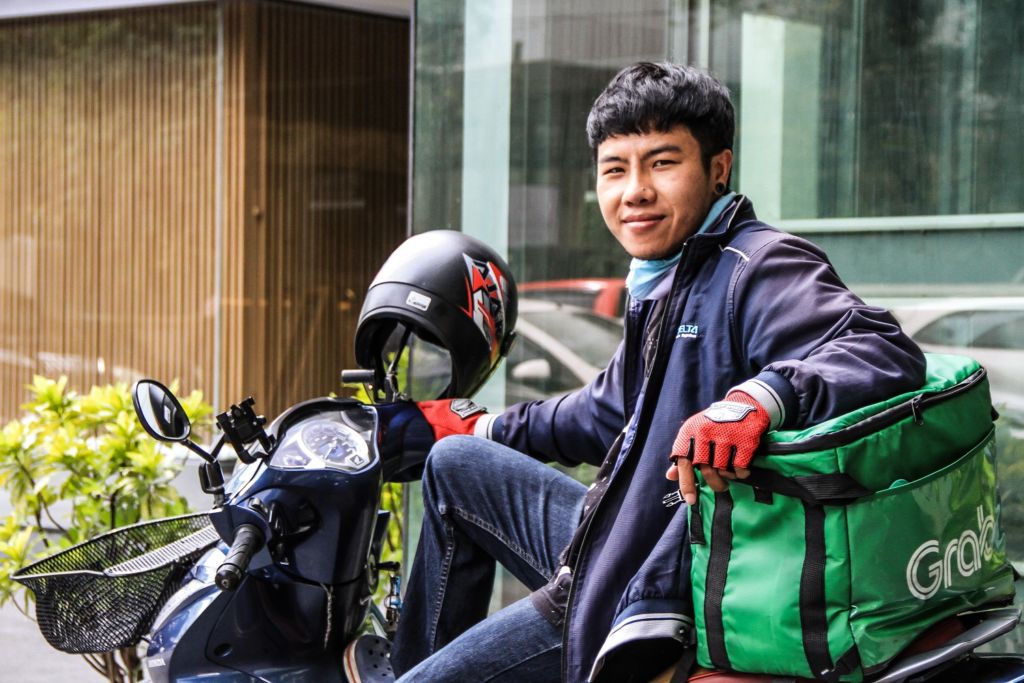
“We’re left behind, way behind. So we came up with an idea that, to solve the problems more sustainably, the government needs to fund our health care,” said Kritima “Jemma” Samitpol, supervisor of Tangerine Clinic, a transgender health clinic in Bangkok.
In 2002, Thailand became one of the first middle-income nations to introduce universal health care coverage. It allowed all citizens to access care for only THB30 (US$1).
It is funded entirely by taxpayers and allocated on a per-capita basis by the National Health Security Office, which has not covered any kind of gender-affirming care in 20 years beyond AIDS/HIV testing.
The LGBTQ+ health advocates who believe the program should be made into a truly universal, health-for-all system are on the cusp of convincing the health security office to add gender-affirming services, something Jemma believes will happen in one or two years.
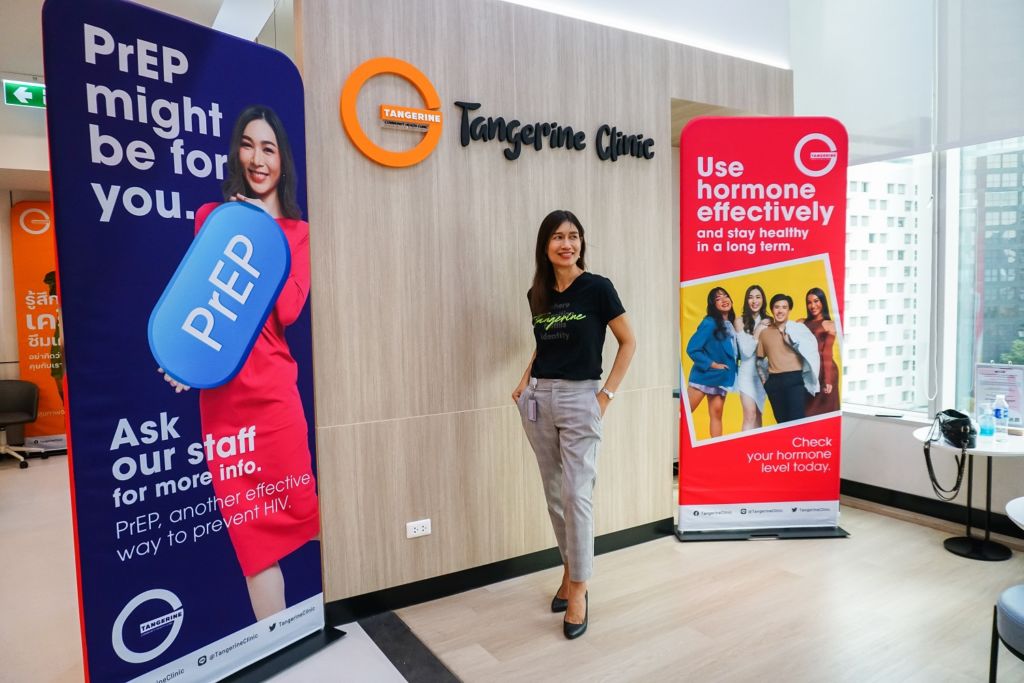
Its importance became clear to her in the seven years she has operated Tangerine Clinic, billed as the first community-led transgender health clinic in Asia. Since opening, the clinic has moved into a much larger space with modern facilities to accommodate the growing demand for services.
“Working at the clinic for years now, it’s evident that LGBTQ+ people are not recognized in the health care system,” Jemma said.
Now, on the verge of pushing Thailand to expand its universal health care net to include LGBTQ+ populations, Jemma talked to us about how she and her colleagues are making that happen.
You’re advocating for Thailand’s universal health coverage to include LGBTQ+ people, why?
When it comes to gender-affirming care, LGBTQ+ people are invisible. Currently, the government doesn’t have policies that are gender-inclusive or gender-sensitive, every LGBTQ+ individual falls victim of stigma and discrimination in accessing health care. Many health care packages are not proactively developed either. Even the fund on health care is not allocated for LGBTQ+ populations.
We’re way left behind, way behind. There is no solid policy that caters to the populations. Even though there are health care services for gender-affirming care, it’s not even affordable nor LGBTQ-friendly. That’s why we came up with an idea that, to solve the problems more sustainably in the long term, the government needs to fund our health care.
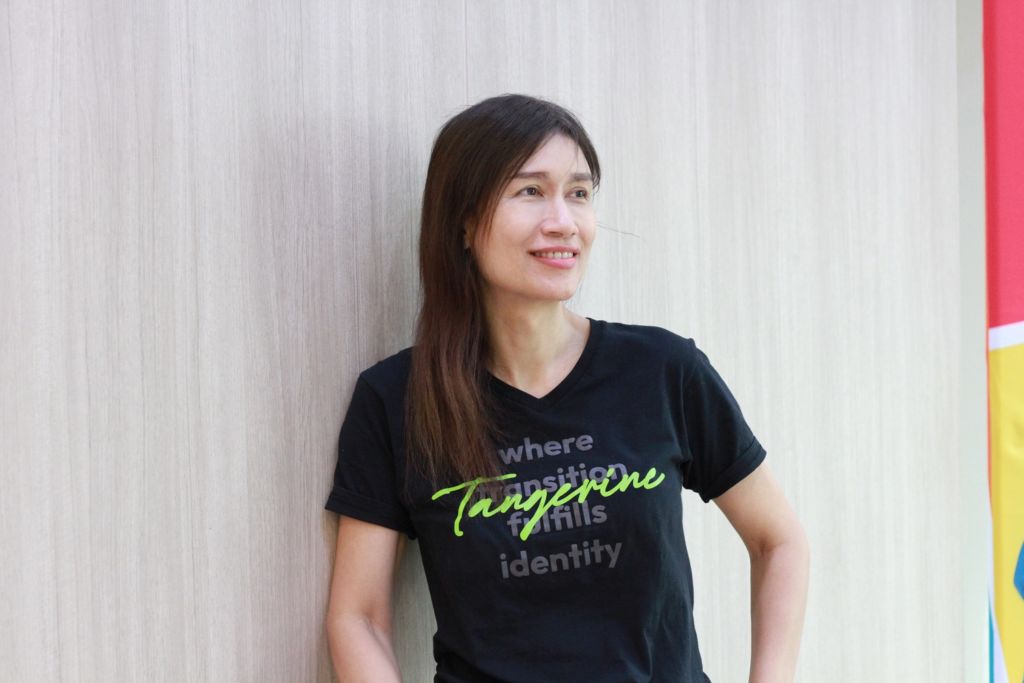
How can this happen? What’s the progress so far?
Every year, the National Health Security Office (NHSO) will allow multi-stakeholders – usually academics, doctors, and civil society – to propose health packages to be included in the “30-baht gold card” scheme. So, in 2020, we proposed the gender-affirming counseling and care to the NHSO with our research. We addressed the issues with them, showing how critical they are and what will happen if LGBTQ+ people lack access to health care. Our pitch was successful and it passed. This marks the first time in history. We went well-prepared, even though we knew that it might not pass. We thought ‘if we have to do it, we must do it properly.’
After the pitch, we were told that we had to conduct more research in terms of accessibility and effective coverage. We’re preparing to conduct the research now and it should take less than two years to finish. It may take quicker than that – about one year. Then we will present the findings to the NHSO board for consideration. If the board approves, then health care services will be included in the universal health coverage nationwide.
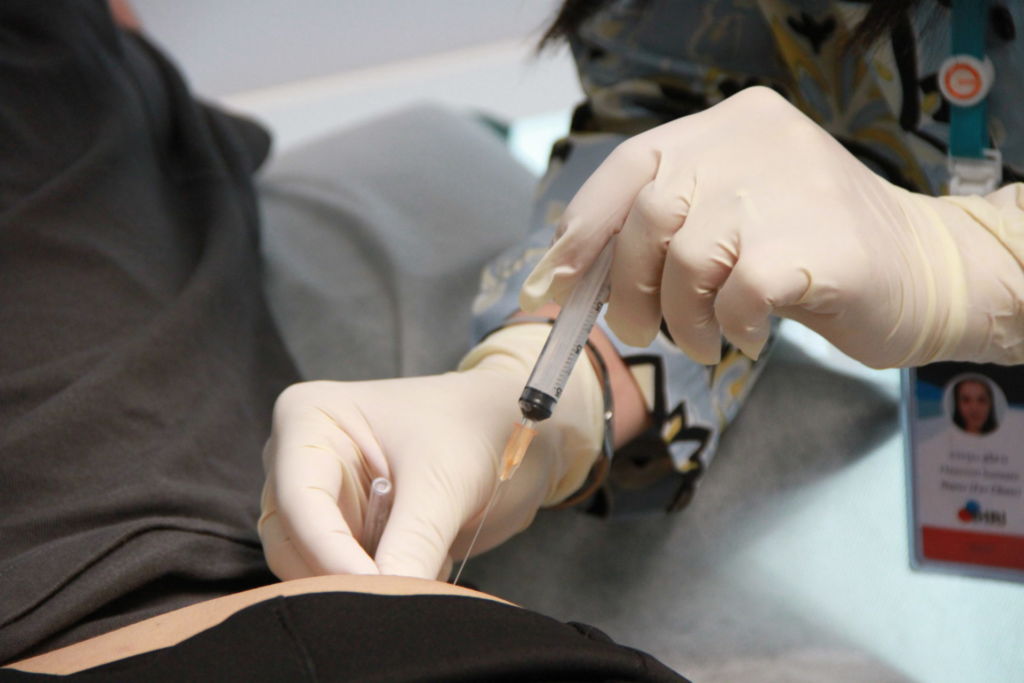
Why should taxpayers pay for gender-affirming care?
Hormonal replacement therapy is already a common treatment for men and women. It’s commonly used to treat women with menopause or aging males. The idea is similar for some transgender people – they need regular hormone monitoring and health checkups. We just need to adapt a little bit and define our target. Make it more gender-inclusive and friendly. It won’t need much financial investment. We just use the resources we already have, apply and adapt them to cover more populations in the country.
If the government doesn’t make it happen today, in another five or 10 years I will still advocate for this. It’s not hard to see that there are many LGBTQ+ people out there and all of them need a proper health care system. That cannot be denied.
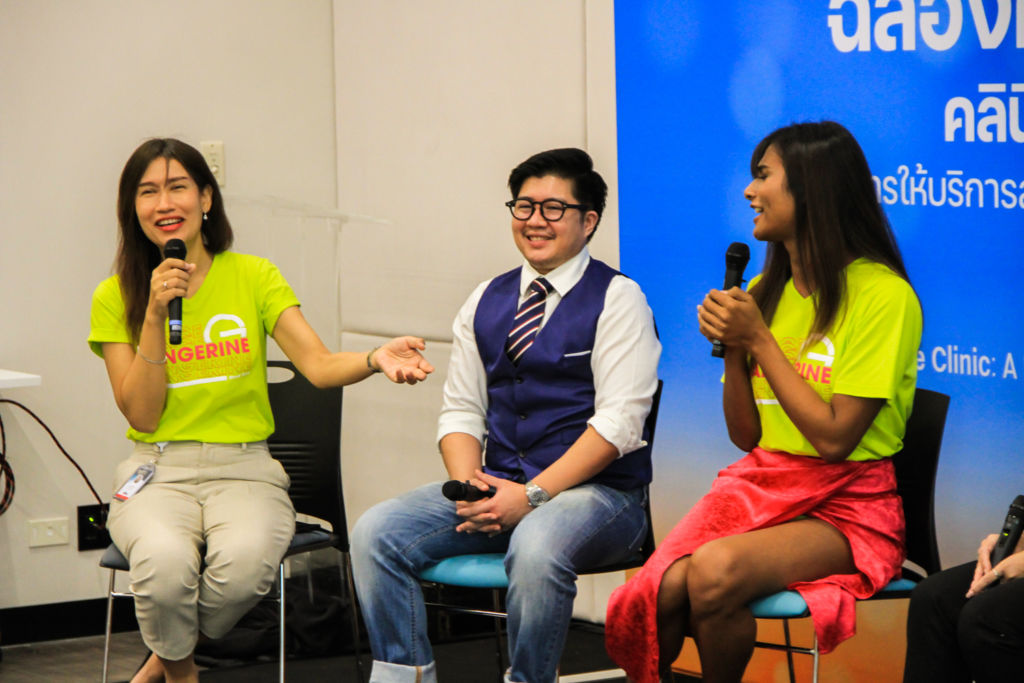
How is adding LGBTQ+ people to the universal health program a long-term solution?
At least one hospital in every Thai province must offer LGBTQ+ health care services to LGBTQ+ people. They must include telehealth to increase access, too.
We must set a criteria that those who have rights to access health care are the people, period. It will unlock so many problems. People identified with LGBTQ+ identities will get appropriate access to professional advice, hormonal therapy, checkup, and so on. If they want to see a psychiatrist or specialists, we’ll be able to refer to them right away. Only the Tangerine Clinic alone is not enough for hundreds of thousands in the LGBTQ+ population out there.
If we continue to go on like this, it’s not sustainable for the Tangerine Clinic either. We work hard to secure funds, but what if one day the funds run out? That’s why we think having government funding LGBTQ+ health care is the most sustainable solution.
Any gender health care clinics you admire?
I look up to health clinics that serve the LGBTQ+ communities like Callen-Lord in New York. I also admire the National Health Service in the United Kingdom because they accommodate health care services for LGBTQ+ people.
Tangerine Clinic moved from its former location to a much larger facility now, what’s new?
We have more counseling rooms and staff members now, which help accommodate more clients. Another new service is mental health: We have psychiatrists ready to provide help at least once a month or per request. We also offer facial feminization or masculinization surgeries that can be done within one day – lifting eyebrows, reducing nipple sizes, for example.
Sometimes clients walk in to consult on complications they’re having from medical procedures. We provide help to people who cannot access standard and affordable gender health care, maybe due to financial problems or other barriers. We now have two surgeons and one of them is specialized in genital surgeries.
Since we opened in November 2015, we have taken care of more than 5,000 clients (as of May 2022). Ninety percent of the clients are Thais while the rest are foreign nationals such as Japanese, Russian, Burmese, Laotian, Malaysian, and Filipino.
Photos: Chayanit Itthipongmaetee / Coconuts Bangkok




